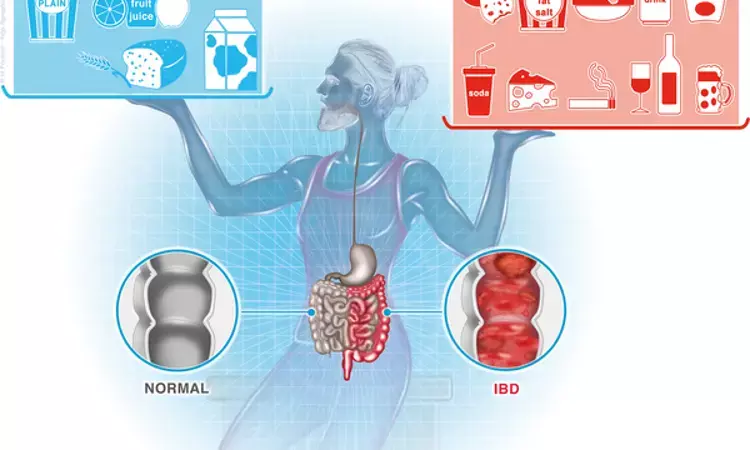- Home
- Medical news & Guidelines
- Anesthesiology
- Cardiology and CTVS
- Critical Care
- Dentistry
- Dermatology
- Diabetes and Endocrinology
- ENT
- Gastroenterology
- Medicine
- Nephrology
- Neurology
- Obstretics-Gynaecology
- Oncology
- Ophthalmology
- Orthopaedics
- Pediatrics-Neonatology
- Psychiatry
- Pulmonology
- Radiology
- Surgery
- Urology
- Laboratory Medicine
- Diet
- Nursing
- Paramedical
- Physiotherapy
- Health news
- Fact Check
- Bone Health Fact Check
- Brain Health Fact Check
- Cancer Related Fact Check
- Child Care Fact Check
- Dental and oral health fact check
- Diabetes and metabolic health fact check
- Diet and Nutrition Fact Check
- Eye and ENT Care Fact Check
- Fitness fact check
- Gut health fact check
- Heart health fact check
- Kidney health fact check
- Medical education fact check
- Men's health fact check
- Respiratory fact check
- Skin and hair care fact check
- Vaccine and Immunization fact check
- Women's health fact check
- AYUSH
- State News
- Andaman and Nicobar Islands
- Andhra Pradesh
- Arunachal Pradesh
- Assam
- Bihar
- Chandigarh
- Chattisgarh
- Dadra and Nagar Haveli
- Daman and Diu
- Delhi
- Goa
- Gujarat
- Haryana
- Himachal Pradesh
- Jammu & Kashmir
- Jharkhand
- Karnataka
- Kerala
- Ladakh
- Lakshadweep
- Madhya Pradesh
- Maharashtra
- Manipur
- Meghalaya
- Mizoram
- Nagaland
- Odisha
- Puducherry
- Punjab
- Rajasthan
- Sikkim
- Tamil Nadu
- Telangana
- Tripura
- Uttar Pradesh
- Uttrakhand
- West Bengal
- Medical Education
- Industry
Smoking and Alcohol Increase Risk of IBD: A Mendelian Randomization Study

Cigarette smoking and coffee and alcohol consumption have been extensively studied for their association with inflammatory bowel disease (IBD) pathogenesis. In a study published in the journal INFLAMMATORY BOWEL DISEASES on July 06, 2020, researchers have reported a positive positive association between the age of smoking and ulcerative colitis (UC) and between alcohol consumption and Crohn's disease (CD).
Crohn's disease (CD) and ulcerative colitis (UC) are widely associated with smoking in epidemiological studies, whereas there are conflicting results for the association between CD and UC for both coffee and alcohol consumption. Therefore, researchers of the University of Ioannina, Greece, conducted a study to investigate whether cigarette smoking and alcohol and coffee consumption are causally associated with either CD or UC.
Researchers used a Mendelian randomization (MR) analysis to evaluate the effect of the exposure factors on CD and UC risk. They included a total of 540 single-nucleotide polymorphisms (SNPs) as instrumental variables for the MR analysis: 10 SNPs for an age of smoking, 47 for CPD, 363 for smoking initiation, 22 for smoking cessation, 90 for drinks per week, and 8 for coffee consumption. They also used sensitivity analysis, to test for any directional pleiotropy.
Key findings of the study were:
• Upon analysis, researchers have found evidence for a positive causal association between the age of smoking initiation and UC risk and between alcohol consumption and CD risk, which disappeared after sensitivity analysis for both associations (P > 0.05).
• However, they found no evidence for a causal association between cigarettes per day, smoking initiation, smoking cessation and coffee consumption variables and UC or CD.
The authors concluded, "We found no clear evidence that either genetically predicted smoking, coffee consumption, or alcohol consumption are causally associated with the risk for CD or UC, although our findings indicate a potential positive association between the age of smoking and UC and between alcohol consumption and CD."
For further information:
Medical Dialogues Bureau consists of a team of passionate medical/scientific writers, led by doctors and healthcare researchers. Our team efforts to bring you updated and timely news about the important happenings of the medical and healthcare sector. Our editorial team can be reached at editorial@medicaldialogues.in.
Dr Kamal Kant Kohli-MBBS, DTCD- a chest specialist with more than 30 years of practice and a flair for writing clinical articles, Dr Kamal Kant Kohli joined Medical Dialogues as a Chief Editor of Medical News. Besides writing articles, as an editor, he proofreads and verifies all the medical content published on Medical Dialogues including those coming from journals, studies,medical conferences,guidelines etc. Email: drkohli@medicaldialogues.in. Contact no. 011-43720751


